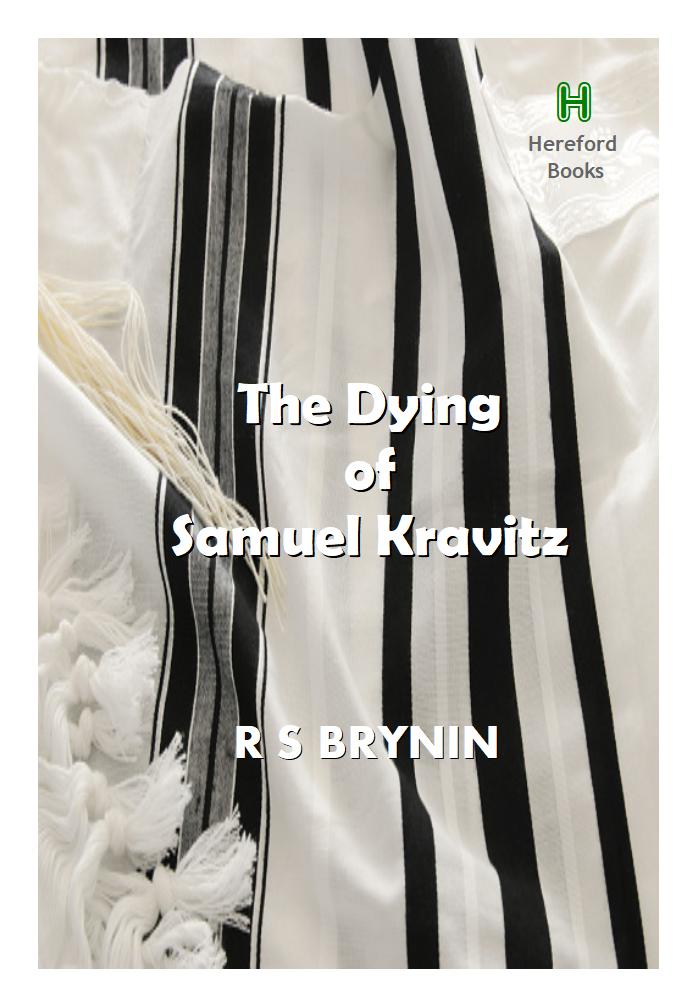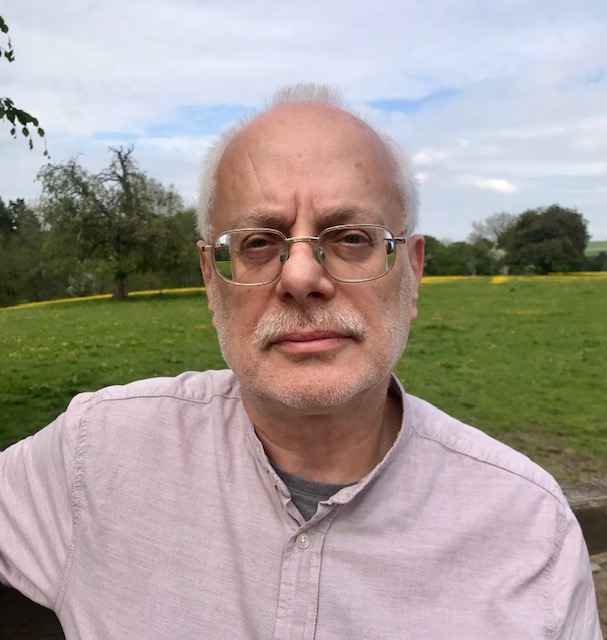
Sample Chapter
Day 6
The next morning in the synagogue Sam looked at his congregation, as he always did, wondering what was going through their minds, as the cantor, Shmuley Levine, conducted the service. Shmuley was good, with one of those voices that was a pleasure to listen to, but also because he smiled, and Sam liked a man who smiled. So, seemingly, did the congregation, because the chattering that had always been an inevitable part of the Saturday service quietened down considerably when Shmuley opened up. Even the women went quiet, well quieter anyway, but Sam recognised that for the matrons with unmarried daughters that might have as much to do with Shmuley’s single status as the quality of his singing. Well, all in all, whilst he recognised that each member of his congregation brought something different to the sabbath, and perhaps took something different from it, he liked them. They truly were his extended family, and he believed they liked him too.
That was when he noticed the chairman of the synagogue Board, Sidney Mendelson, looking at him strangely. Sidney was clearly watching him, but at the same time it was apparent that he didn’t want Sam to know he was watching him. More than once he got up from his seat, and looked for all the world like he was going to approach Sam’s seat, something that would have been completely normal during the service, but then he seemed to change his mind and he turned to pass some comment to one of his fellow Board members sitting in the front row with him, or perhaps any of the other men who wandered about the synagogue as the service progressed.
If Sidney wanted to say something to him Sam decided to make it easier. He lowered his head and focused on the book in front of him, which gave the chairman a chance to approach unobserved.
“Rabbi, Shabbat shalom.”
“Shabbat shalom Sidney. How are you?”
“Well enough thank you.”
“And the family?”
“Yes, thank God, we’re all well, thank you.”
“Shmuley seems in particularly fine voice this morning, don’t you think?”
“Does he? I hadn’t noticed. Rabbi …”
“Yes Sidney?” Sam didn’t look up but continued to read. He could read, listen and even speak, quite well, all at the same time.
“Rabbi, are you well?”
Sam considered for a moment, before answering, what this normally innocent question might mean.
“Why, Sidney, do I not seem well to you?”
“No.” Well it was direct anyway.
“So, no, I am not well. I was going to talk with you after the service. Is there a kiddush today?” Most Saturdays there were drinks and cake in the synagogue hall after the service.
“Yes, it’s the Ladies’ Guild this week.”
“Fine. Let’s talk in my office before that. Now, as you observe, I am not well and I am going to ask you to return to your seat so I can concentrate. Will you do that for me?”
There were only a few minutes between the end of the service and the kiddush, which was far from ideal, so Sam had to make it quick.
“Sidney, I was going to tell you today anyway. Look, do sit down, please. As my employer, the Board has a right to know that I have been diagnosed with a serious illness.”
“I see. I truly am sorry, Rabbi. May I ask …?”
“I’m afraid I have cancer.”
Sidney had a sudden involuntary intake of breath. His eyes took on a frightened look, although whether in sympathy or because he had mentioned the name of an evil spirit Sam couldn’t say. He waited for Sidney to get over the shock.
“As I say, Sidney, the Board needs to know what the ramifications are …”
“No, wait a minute Samuel, I must stop you there. I appreciate what you’re saying, but I am also a little offended.”
“You are?”
“Indeed I am. Yes, we employ you, but come on, how long have you been here, thirteen, no, fourteen years? Do you not think my first concern is that a friend is in trouble?”
“Sidney, I’m sorry. Of course, how foolish of me. I’m afraid I have rather been knocked sideways by this. I’m not thinking straight. Please forgive me if I have inadvertently caused offence.”
“Consider yourself forgiven. Now, tell me about this.”
And Sam did. There wasn’t much to tell, of course, once Sidney had been given the headlines. They needed to get to the synagogue hall, but while Sam was prepared for that Sidney wasn’t. He didn’t trust himself just yet to smile and shake hands as if nothing had happened. Sam saw the distress in his face, and berated himself for not understanding the depth of the friendship between them. He offered to give some excuse for his absence, and Sidney left the building for home.
Sam did what he always did on Saturday afternoon, he slept. Judith watched him slumbering on the sofa, his hand on the book he had been reading, his glasses fallen halfway down his nose, his face twitching. Whether he was dreaming or it was the pain she didn’t know. Well, if it was the pain it wasn’t enough, thankfully, to wake him. She liked to watch him sleep, normally anyway, but now as she gazed lovingly at him she saw suddenly how close sleep was to death, and she wanted him to wake, so much that she was tempted to clear her throat, clatter some crockery in the kitchen, anything that might bring him back to wakefulness. Would that have been selfish? Yes, perhaps. He needed to sleep. He worked long hours as it was, and those hours had not yet been curtailed by his illness. She wondered how this was going to go, how long it would be before he had to give up the congregation, whether because of the cancer itself or because of the treatment. She had heard things about chemotherapy, and what she heard did not make her well disposed to it. She wanted to ask Jonathan for his opinion, for his true feelings about the chance of Sam recovering from this, but she didn’t ask him because she was afraid of his answer. Jonathan would not spare her the truth, not because he didn’t care about the pain it would cause her because he did, but because Jonathan didn’t know how to varnish the truth. There was only one truth for him, and if you asked a question that was what you got. Well then, she would avoid the question.
They hadn’t talked about the treatment. Actually, she realised they hadn’t talked much about the cancer. It was as if once its existence had been accepted there was nothing to say, and what they had talked about instead was the children, how to tell them and how to support them emotionally. She could see the conflict her husband was going through, wanting to protect them, wanting to protect her, but wanting someone to protect him at the same time. He was trying to be strong for them all, but surely they should be strong for him. She had spent all their married life being strong, being there for him, not always getting the reward she might expect for her loyalty and devotion, but on the other hand she hadn’t gone into this for any reward, she had truly gone into marriage to a rabbi to serve, him and the congregation. And their life had had its rewards after all; the children, yes, she could count them as a blessing, and Samuel himself, he had been a good husband and father. No, she had no complaints. Well, only one, that she couldn’t have more of this. It wasn’t a wonderful life, but neither did she want it to come to an end. She didn’t know how successful the treatment was likely to be, but her common sense told her there was no such thing as curing the cancer. It was an enemy that might be fought to a standstill but she sensed it could not be defeated. Therefore, logically in her mind, the rest of their life together was going to be a compromise. Well, their life had always been one of those, no more or less than most people’s she supposed, but now the nature of that compromise had been suddenly and dramatically altered. She couldn’t have what she had before, she knew that for sure, but what she did not know was what she could have from now on. In short, she did not know how long they would have together, and what it was going to be like. Those things, she believed, were in the hands of the Almighty. Sam was a good man and deserving of God’s blessing, but she knew that was a simplistic view, that many people in the history of the world had been good, and deserving of God’s blessing, but had not been given it. Her paternal grandparents had died in the Warsaw ghetto, so his blessing had definitely not been vouchsafed them.
And if God snuffed out people’s lives like that, his people’s, then who was safe? She had spent her life following God’s ordinances, obeying Jewish law in both the letter and the spirit, and it had always been her belief that that was what God demanded of Jews, and that was enough. But clearly it was not enough. What did he want, if not that? What could she have done to save her husband from this?
A prayer formed in her mind, a very personal prayer, not the kind she had muttered all her life that someone else, some rabbi from past times, had formulated, but a very personal cry from her heart, not for Sam’s life, but that the Almighty might show her what she had failed to do in order for him to bestow his blessing on her husband.
No answer came, and she knew, then, that no answer would or could come. She had always leaned on her husband for answers to Jewish questions. He was, after all, a rabbi, and learned in these matters, but this was a question she could not ask him. This was a conversation that could only take place between her and her god. And it was at that moment, just as she understood that it was her and God alone who needed to have that conversation, that she first missed her husband.
Copyright R S Brynin 2022
